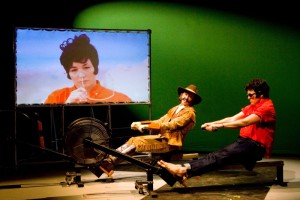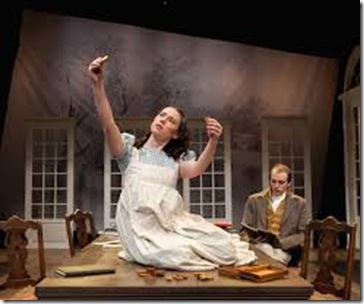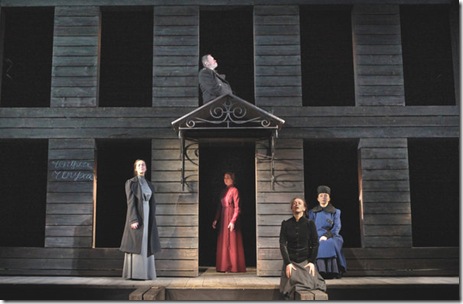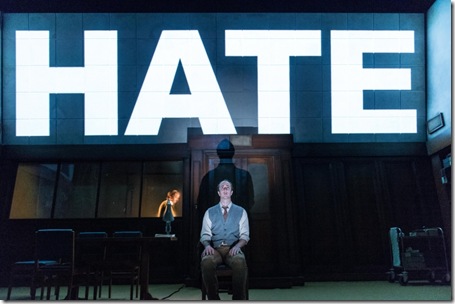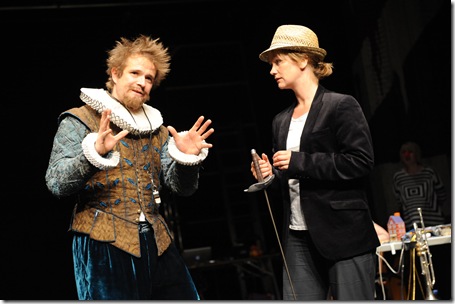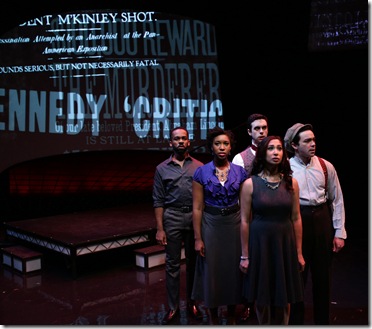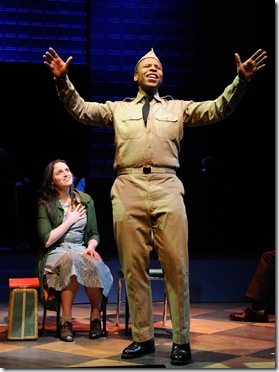Dogfight: The Education of a Misogynist Marine
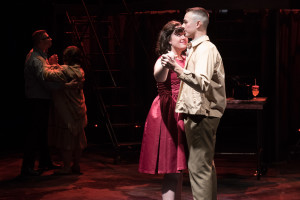
Dogfight
Music and Lyrics Benj Pasek & Justin Paul
Book by Peter Duchan
Directed by Paul Daigneault
SpeakEasy Stage Company
Dogfight, the 2013 Louise Lortel Award winner for the outstanding Off-Broadway musical of the year is currently being presented by Boston’s SpeakEasy Company under the capable direction of Paul Daigneault. Composers and lyricists Benj Pasek and Justin Paul together with bookwriter Peter Duchan based their show on the 1991 non-musical film of the same name.
Dogfight takes place in two different time frames, 1963 and 1967 with the majority of the action happening in the earlier era. It is a strangely divided two-act musical. The first act deals with male bonding, cruelty, dreams of heroism, misogyny, and naïveté; the second develops into a love story. Early on, three young marine buddies – Eddie Birdlace (Jordan J. Ford), Boland, (Jared Troilo) and Bernstein (Drew Arisco) – who are shipping out of San Francisco the following day for Vietnam decide to spend their last night stateside playing a sadistic and humiliating game. This Marine tradition involves setting up a contest in which each man attending must put in a sum of money and bring an ugly girl. The escort of the homeliest date wins the pot. …
